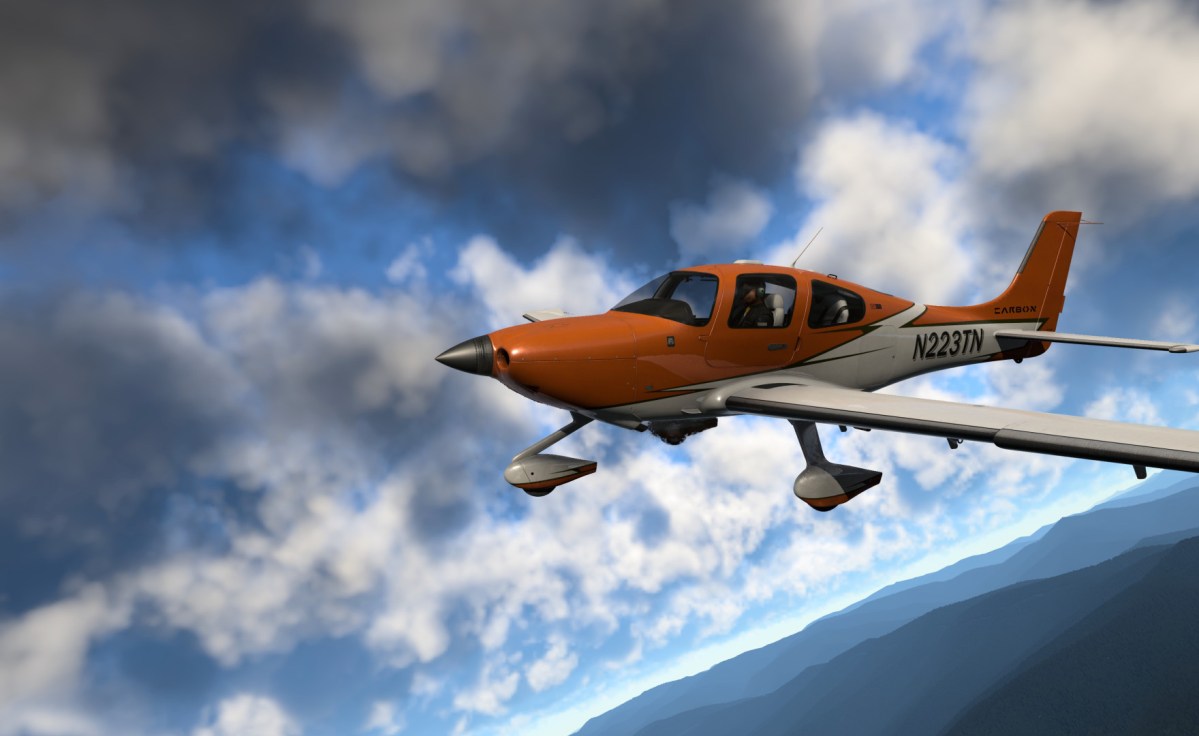X-Plane 12 launched in Early Access recently after its predecessor occupied the frontlines for over five years. While it does bring a lot of new features to the table, early adopters have been a bit unhappy with some of the issues that have arisen. From poor quality scenery to off-looking lighting, some have concluded that the sim isn’t as big of a leap forward as they had anticipated. Laminar has now stepped in to release a statement that outlines some of the improvements coming to X-Plane 12 in the future and acknowledges some of these qualms.
In a blog post on the official X-Plane website, Ben Supnik, a software engineer for the sim, outlines how X-Plane 12 spent nine months in an alpha test phase leading up to its recent public release. While a lot of work was done to get it up to this point, Laminar is aware that there’s a lot more to be done.
Just getting started
Supnik says that the team is aware of “over two hundred open bugs,” and there’s a lot they want to do. However, the sim was rolled out as a public release due to the studio wanting “the entire X-Plane community [to] be involved in X-Plane 12’s growth.”
In all fairness, Laminar makes it clear on its storefront this is an Early Access release. At this point, most PC gamers know what to expect from a title in this state. It’s, by account of its name, an unfinished product that’s being consistently tweaked and improved.
So, as mentioned in the blog post, Laminar has chosen to give customers the option of choice. They’re free to opt-in now during this early phase, or they can fly in later and enjoy a more refined product.
Going through the preflight checklist
For now, the team has stated that it’s focusing on working to improve the sim’s clouds, lighting, third-party interfaces, and the MCDU in the new default Airbus A330. Overall, this work will help improve the sim’s visual fidelity, and offer smoother performance and better functionality for various components of the sim.
The team is also aware that a lot of the processing has been moved from the CPU to the GPU compared to how things worked in X-Plane 11. So now more refinement needs to be done in order to rectify the blurry textures some players have reported. Laminar points to a lack of VRAM optimization, which is being worked on.
In the meantime, it encourages users to play with the texture slider to see how well the sim handles texture processing with the available VRAM of your card. Another official suggestion is to set the sim to a lower resolution, which will result in better texture quality due to how it makes use of VRAM.
Additionally, improvements are being made to the overabundance of magenta, a bug that some users have encountered, specifically those that use Nvidia GeForce 900 series GPUs. Finally, using AMD FidelityFX (FSR) is recommended “if you want to/need to run at 4K and your GPU is struggling.”
Patience and persistence
The sim is currently only using FSR 1 rather than the far more advanced FSR 2. It also lacks support for Nvidia DLSS. Considering other modern sims like Microsoft Flight Simulator and Farming Simulator 22 currently make use of these more advanced techniques, why not the newer X-Plane 12? As Laminar puts it, it’s due to the fact that they both require “motion vectors as inputs from the rendering engine,” which isn’t available in X-Plane 12 at this time. The team suggests that it may come further down the line, as it’s an arduous task.
Laminar promises to soon release more news on the sim’s development roadmap, as well. It’s good to see that the studio is well aware of the userbase’s concerns, but it’s still understandable why there’s backlash.
True, X-Plane 12 is an Early Access title, so anyone who jumps in now is signing up for the inherent risks associated with that. But, considering that it’s been so long since X-Plane 11 first launched, the journey to “completion” just feels like a rather lengthy runway.
What’s really compounding the issue is how X-Plane 12 compares to that of Microsoft Flight Simulator. While the two series have been battling it out for quite some time, X-Plane has had things pretty easy due to the fact that Microsoft basically left its own series out to dry for several years. As MFSX aged and became more archaic with each passing year, X-Plane 10 and X-Plane 11 came along, providing a far more complex and modernized feature set for simmers of the time.
Looking ahead
But now the Flight Simulator series is back and far larger than ever before. Microsoft has thrown a major amount of investment into the new sim and has ensured that it has some top-notch talent at the reigns. Asobo and its partners have been combing over the sim for two years since release, and there’s still several more years of support to go.
Considering the vast amount of resources, such as the cloud technology that allows for data to be streamed to the sim, the immense amount of partner studios working on things like airports, scenery and aircraft, and the accessibility that comes with its availability on Xbox Game Pass, Microsoft Flight Simulator is in a whole different weight class compared to that of X-Plane 12 in its current form.
The crux of the matter is that Laminar has its work cut out for it this time around. It’s no longer a young stallion competing with an aged has-been. So, while it will always have its loyal fanbase, in order to sway the masses like before, it’s going to have to really punch above its weight.










Published: Sep 16, 2022 8:45 PM UTC